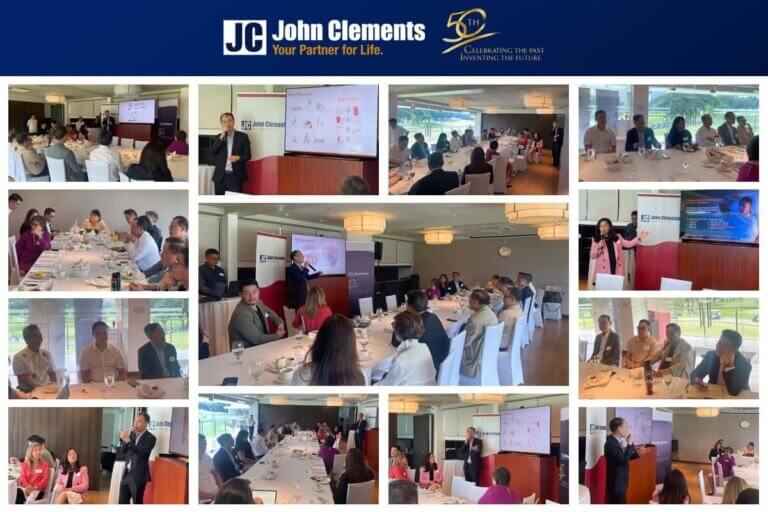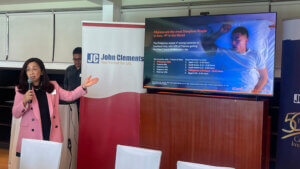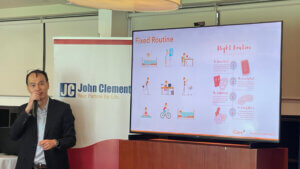On August 15, 2024, industry leaders and executives gathered for two pivotal events emphasizing the importance of sleep for leadership and productivity. The day began with a breakfast roundtable hosted by John Clements Consultants, Inc., in partnership with iCare. In the evening, the Filipina CEO Circle (FCC) held its August General Members Meeting, also in collaboration with iCare. Both events featured an insightful presentation by renowned sleep expert Dr. Wong Sheau Hwa, who highlighted the significant impact of sleep—or the lack of it—on personal health and organizational success.

The Growing Sleep Deficit in the Philippines
Dr. Wong’s presentation, titled “Sleep Your Way to the Top,” analyzed the sleep patterns of Filipino adults, revealing an alarming trend of sleep deprivation across the nation. While the ideal sleep duration for adults is 8.2 hours per night, Filipino adults average only 6.8 hours, creating a sleep deficit of 1.4 hours. This makes the Philippines the most sleep-deprived country in Southeast Asia and fourth globally, behind Japan, South Korea, and Saudi Arabia.
This widespread sleep deprivation comes with profound consequences. Dr. Wong presented data showing that 56% of Filipinos get less than 7 hours of sleep each night, increasing their risk of health issues like weakened immune systems and chronic conditions such as heart disease, obesity, and type 2 diabetes.
Health Implications: The Cost of Lost Sleep
Dr. Wong highlighted several key health impacts of insufficient sleep:
- Immune System Weakening: Individuals who sleep less than 7 hours per night are three times more likely to catch the common cold. Those sleeping under 5 hours have a 70% higher risk of contracting pneumonia.
- Chronic Illnesses: Short sleep duration is linked to a 45% increased risk of developing or dying from coronary artery disease. Sleep-deprived individuals are also more prone to overeating, leading to weight gain and obesity.
- Cognitive Decline: Sleep loss disrupts cognitive functions, affecting attention, working memory, and logical reasoning. Over time, these issues contribute to accelerated brain aging and an increased risk of dementia.
Economic Impact: The Hidden Costs of Sleep Deprivation
Dr. Wong also discussed the economic implications of sleep deprivation. Citing a 2017 RAND study, he explained that sleep loss can cost countries up to 2.92% of their GDP due to decreased productivity, increased absenteeism, higher workplace accidents, and elevated healthcare costs. For businesses, this emphasizes that sleep is not just a personal health issue but a critical factor in maintaining economic efficiency and competitiveness.
Actionable Recommendations for Leaders and Organizations
Dr. Wong provided practical recommendations for both individuals and organizations:
- For Employees: Establishing and maintaining a consistent sleep schedule is crucial. Creating a sleep-conducive environment—comfortable mattress, cool and quiet room, and reducing screen time before bed—can improve sleep quality.
- For Employers: Employers can promote healthy sleep habits by offering flexible work schedules and implementing workplace sleep education programs. Providing resources like sleep wellness programs can support employees in achieving better sleep.
A Call to Action: Prioritizing Sleep for Success
The events concluded with a strong call to action for leaders to prioritize sleep as a key element of both personal and organizational success. Emphasizing sleep’s critical role, it’s clear that better rest enhances cognitive performance, boosts productivity, and drives economic outcomes. The importance of sleep for effective leadership and overall productivity cannot be overstated.

To explore more insights into leadership success, visit our Leadership Development page.







